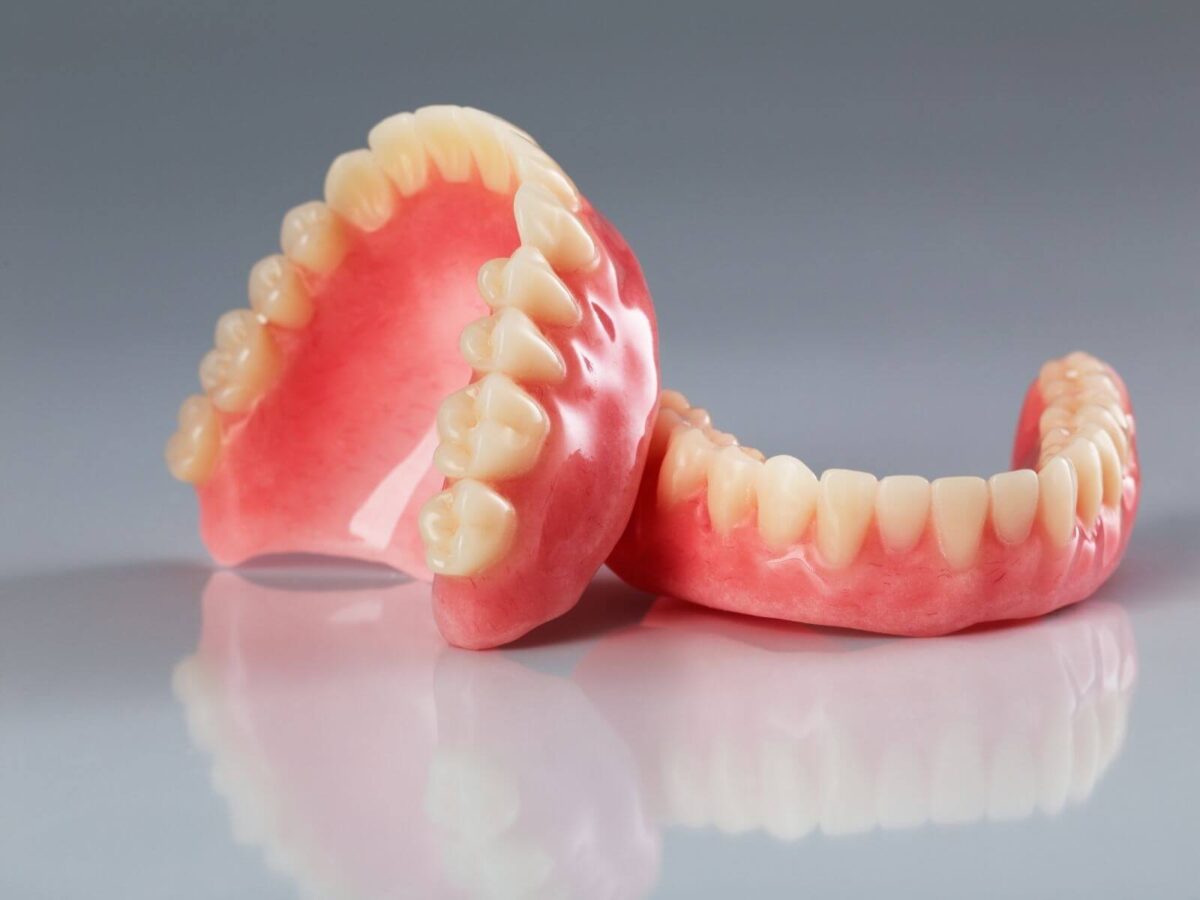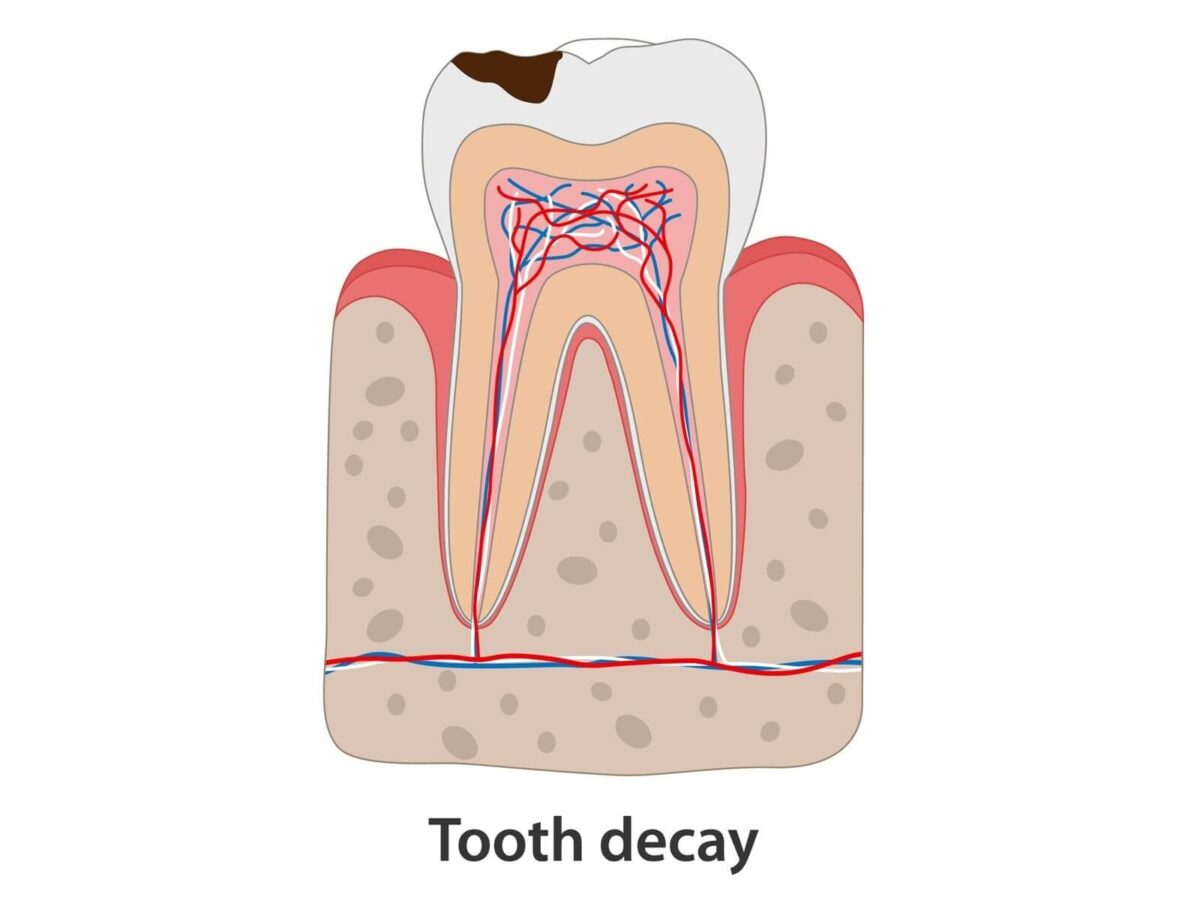Many people who want to improve their smile and mouth health can get dentures. Taking good care of your dentures is really important for them to last and keep your teeth healthy. Taking care of dentures means cleaning them overnight, but many folks tend to forget or argue about that.
Let’s chat about why soaking your dentures overnight is important and how it can help keep your teeth healthy and extend their lifespan. San Antonio Family Dentist will guide you in taking care of your dentures.
Top 7 Reasons to Soak Dentures Overnight
Here are the top 7 reasons for keeping your dentures soaked overnight. These denture hygiene tips can also help you keep your mouth healthy.
1 Keeps Germs Away From Dentures
Every day, dentures pick up germs just like real teeth. If you don’t treat these germs properly, they can make things smell bad, build up plaque, and make you sick. Soaking dentures in a cleaning solution for a night gets rid of bacteria and plaque that you might miss when you brush them.
When you clean your dentures, you use an antibacterial solution that gets into the small pores of the teeth to kill germs and keep them fresh. As dentures have more holes than real teeth, bacteria can grow on them more easily.
If you brush your teeth without soaking them first, microorganisms that cause denture stomatitis can stick to them. Dentures can be cleaned the next day after being soaked overnight. This denture maintenance routine gives them a longer life.
2 Keeps Dentures in Shape
Dentures that fit tightly over gums are stable and comfortable. Too much dry air or poor storage might distort dentures. Acrylic teeth need moisture to keep them robust and shapely. Just let your teeth soak overnight in some water or a cleaning solution to keep their shape intact.
Unfitted dry dentures can shrink, warp, and cause gum inflammation. Over time, unsoaked teeth lose their custom-fit feel, making them less functional and uncomfortable. Soaking ensures fit and durability.
3 Reduce the Risk Of Oral Infections
Poorly cleaned dentures could be harmful to your mouth’s health. If you don’t treat denture bacteria, they can cause denture stomatitis, which is also known as thrush. Too much yeast can redden, swell, and irritate tooth gums.
Leaving anything in a cleaning solution overnight destroys yeast, germs, and fungi, reducing disease. People who wear dentures all the time must clean them more because bacteria thrive when saliva flow stops. Soaking your teeth at night can help keep your mouth and gums healthy.
4 Makes Dentures Last Longer
Your dentures can last for years if you take good care of them. Soaking them overnight makes the most of this purchase. Use carefully made cleaning solutions to keep denture materials clean and in good shape.
When you use these treatments regularly, plaque, discoloration, and cracking improve. If you clean and wash your teeth the way the directions say to, they will last longer. You can save a lot of money by soaking your teeth every night for just a few minutes.
5 Makes the Mouth Feel Better and Fresh
Biofilm is a sticky covering that can cause bad smells when dentures are worn every day. Dentures are repaired overnight by washing them to get rid of biofilm and germs that cause bad breath. It makes your dentures smell and feel clean every morning.
It is good for your mouth health and your social life. By soaking dentures in a fizzy cleaning solution, tiny bubbles can get into tiny spaces and get rid of food bits that could be causing bad breath. With new teeth, you can smile every day with a clean, nice, and odor-free smile.
6 Gives Gums A Break and Helps Them Heal
Since your gums have to work hard to hold up your teeth, wearing them all day could be painful and irritate them. Taking out your dentures at night gives your gums a break and helps pressure sores heal. Time without dentures reduces gum swelling, sore spots, and wounds.
The San Antonio Family Dentist recommends resting your gums for 6 to 8 hours a day, and the best time is at night. Soaking your dentures overnight will also make them safer and better to use the next day.
7 Helps People Be Consistent
Soaking your dentures at night might become as normal as brushing your teeth. Following this method, suggested by expert dentists, will ensure that your dentures receive regular care and maintenance.
Sticking to a cleaning routine will help you remember to rinse your mouth out after meals, brush your real teeth, and keep your mouth clean. It is an easy way to keep your mouth and teeth clean every night and then the following day.
Right Way to Soak Dentures
To get the most out of your long soak, do these things suggested by San Antonio Family Dentist:
- Instead of toothpaste or rough materials, use a denture-cleaning solution to soak your false teeth.
- In the morning, rinse your teeth well before putting them back in your mouth.
- If you want to soak your dentures, use warm water instead of hot water.
- Bleach and cleansers are bad for teeth, so stay away from them.
Conclusion: Keep Your Dentures Clean, Fresh, and Long-Lasting
Soaking dentures overnight can make them cleaner, last longer, and be more comfortable. It lowers the risk of infections, keeps dentures in good shape, and keeps them fresh and comfy. With a soak at night, you can be sure that your smile is clean and comfortable when you wake up in the morning. Contact San Antonio Family Dentist for more details.



